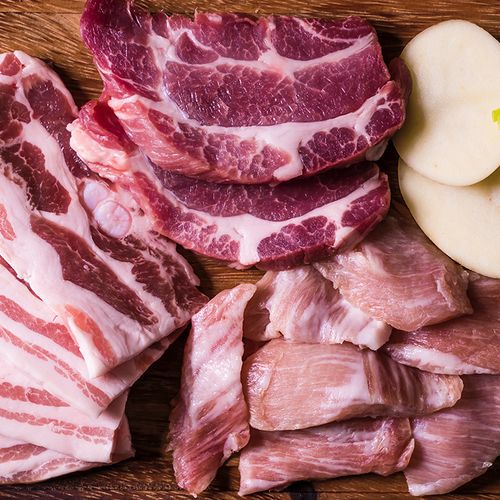A quarter pound hamburger or a small pork chop eaten daily could put you at increased risk for a variety of cancers, US government health researchers report.
The more red meat and processed meat you eat, the greater your risk, the researchers from the National Cancer Institute (NCT) concluded.
"Red and processed meats have been associated with an elevated risk of colorectal cancer. We investigated whether this association was also evident for cancers at other anatomic sites." explained lead author Amanda Cross, an epidemiologist at the NCI. "This is the largest study to look at the effect of red and processed meat on multiple cancer sites, including rarer cancers, such as laryngeal and liver cancer."
The Study
For the study, red meats included beef, pork and lamb. Processed meats included bacon, red-meat sausage, poultry sausage, luncheon meats, cold cuts, ham, regular hot dogs and low-fat hot dogs.
Cross and her team from the National Institutes of Health and the AARP analyzed health data from 500,000 people ages 50 to 71. They followed participants for about eight years, during which time they recorded 53,396 cases of cancer. In addition to meat consumption habits, the participants detailed other lifestyle choices such as smoking and exercise.
The team then grouped the people into categories, according to their level of meat consumption
"In the top category of red meat eaters were those consuming the equivalent of a quarter pound hamburger or a small steak or a pork chop per day," said Cross, who added that in the lowest category, participants ate approximately three thin slices of ham or less per day.
For processed meat, those in the lowest category ate no more than one slice of bacon a day. while those in the top consumption category ate four slices a day.
The median consumption of red meat was 31.4 grams per 1,000 calories. This works out to about two and a half ounces of red meat a day for a person consuming the average 2,000-calorie diet.
Study Findings
Overall, the researchers found elevated risks for colorectal and lung cancer with high consumption of both meat types along with borderline higher risks for advanced prostate cancer. High red meat intake was also associated with increased risk for esophageal cancer and liver cancer and a borderline increased risk for laryngeal cancer. And high processed meat consumption also was associated with borderline increased risk for bladder cancer and myeloma, a kind of bone cancer.
In addition, both red meat and processed meat consumption were associated with increased pancreatic cancer risk in men, but not women.
And the research team noted an unexpected effect of red meat on endometrial cancer: The more red meat women consumed, the less likely they were to suffer from endometrial cancer.
Theories
There are several possible routes by which red and processed meats may contribute to cancer, the NCI researchers said. Meats are a source of saturated fat and iron, both of which have been linked to cancer, and also the source of several compounds that are known to affect cell development, they added.
Cooking at high temperatures might also contribute to cancer risk, Cross added.
"Compounds such as heterocyclic amines and polycyclic aromatic hydrocarbons are formed when meats are cooked well-done by high temperature cooking methods, such as barbecuing." she said. Studies have linked these compounds to increased risk for cancer.
"This adds to the body of knowledge that supports recommendations that to reduce the risk of colon cancer, you should reduce your consumption of red and processed meats," said Colleen Doyle, director of nutrition and physical activity for the American Cancer Society. "It also adds to the smaller amount of research tying red and processed meats to other types of cancer risk. The American Cancer Society recommends reducing red and processed meat consumption to reduce the risk of prostate cancer."
"We really see this study that it further illustrates the complexity and challenges of understanding research related to diet and cancer. They also could have said red meat is protective against endometrial cancer. The challenges of looking at diet and cancer are just vast," said Mary K. Young, vice president for nutrition with the National Cattlemen's Beef Association. She noted that the researchers did not ask how food was prepared, which she said could have affected the health outcomes.
Doyle and Young, both dietitians, agreed that diet plays a critical role in health.
"One of the most important things people can do to lower their risk of chronic disease, including cancer, is maintain a healthy weight," added Young, who recommended that people follow national dietary guidelines, watch their serving sizes and stay physically active.
People worrying about cancer and diet should take a balanced approach, said Doyle. "No one food is going to put our cancer risk over the top. If you are someone who eats steak or pork or lamb or salami or hot dogs, etc., on a regular basis and/or in large portion sizes, I would probably suggest you look for healthier protein sources to include in your diet," she added. The American Cancer Society recommends that people eat lots of fruits, vegetables and whole grains with some lean proteins to prevent cancer.
